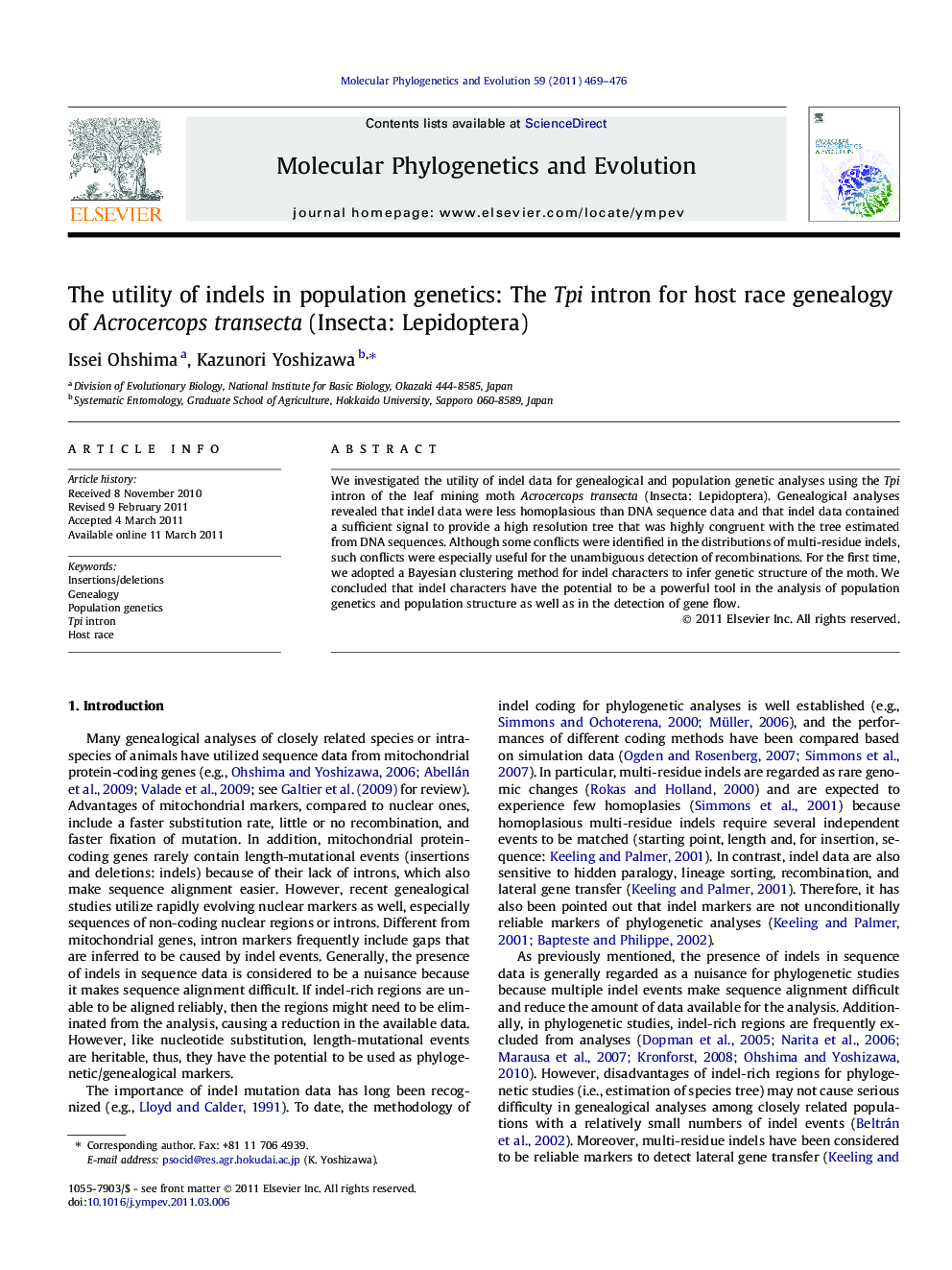| Article ID | Journal | Published Year | Pages | File Type |
|---|---|---|---|---|
| 2834222 | Molecular Phylogenetics and Evolution | 2011 | 8 Pages |
We investigated the utility of indel data for genealogical and population genetic analyses using the Tpi intron of the leaf mining moth Acrocercops transecta (Insecta: Lepidoptera). Genealogical analyses revealed that indel data were less homoplasious than DNA sequence data and that indel data contained a sufficient signal to provide a high resolution tree that was highly congruent with the tree estimated from DNA sequences. Although some conflicts were identified in the distributions of multi-residue indels, such conflicts were especially useful for the unambiguous detection of recombinations. For the first time, we adopted a Bayesian clustering method for indel characters to infer genetic structure of the moth. We concluded that indel characters have the potential to be a powerful tool in the analysis of population genetics and population structure as well as in the detection of gene flow.
Graphical abstractFigure optionsDownload full-size imageDownload as PowerPoint slideHighlights► Indels involve useful genealogical signal less homoplasious than DNA data. ► Multi-residue indels are especially useful for detection of recombinations. ► For the first time, a Bayesian clustering method was adopted for indels.
